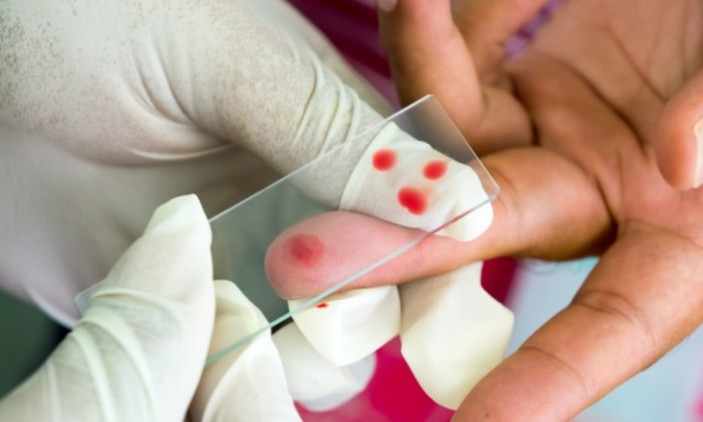Properly analysed, Fraunhofer lines provide information about the exact chemical make-up of whatever is reflecting the light.
经过恰当分析,夫琅和费谱线可以提供关于任何反光物体的化学组成的确切信息。
Their patterns in spectra therefore correspond to the different chemistries of species, sexes and ages.
因此光谱中它们的模式就相当于种类、性别和年龄的不同化学反应。
That permits the construction of a library, with which unknown insects can be compared.
因此,一座图书馆得以建立,未知昆虫得以进行对照。
That, at least, is the theory. Dr González-Jiménez is trying to put it into practice.
这至少是一个理论。González-Jiménez博士正试图将之运用于实践。
His methods are now 83% accurate at recognising species, and close to 100% accurate at recognising age.
现在他这些方法的种类识别正确率为83%,年龄鉴别正确率则接近100%。
He and his colleagues are also using the process to try to determine how resistant the now-dead insect being examined would have been to insecticides.
他和他的同事也试图用这种方法判断死昆虫对杀虫剂的耐药性有多强。
What works in a laboratory in a Scottish city might not, though, work in the African countryside.
虽然在苏格兰实验室中奏效的方法在非洲农村或许没用。

The person in charge of testing that out is Fredros Okumu, science director of the Ifakara Health Institute, a Tanzanian organisation.
负责彻底检验此方法的人是Fredros Okumu,他是坦桑尼亚组织—Ifakara健康研究所的科学主任。
Ifakara runs Mosquito City, a research facility in the Kilombero River valley.
Ifakara经营着一座蚊子城市,这是一个位于基隆贝罗河谷的研究设施。
Mosquito City's buzzing, whining "biospheres" mimic local field conditions, even down to banana plants and goats.
蚊子城市抱怨“生物圈”模仿当地野外条件的嗡嗡声甚至穿透至香蕉树和山羊群。
Besides testing the equipment, Dr Okumu and his team are also trying to extend the range of data that mosquito spectra can provide,
除了对设备进行测试外,Okumu博士和他的团队也尝试扩大蚊子光谱可提供的数据范围,
including into the way the insects behave. Some mosquitoes, for example, feed only on people. Others dine as well on chickens, cows and goats.
包括昆虫的行为方式。例如,一些蚊子只吸人血,其他蚊子也以鸡、乳牛和山羊血为食。
This is all valuable information. But it will be much more valuable if it can be gathered easily in the field.
这些都是重要情报。但是如果可以在实地轻松收集到这些情报,那么将更有价值。
Engineers at Glasgow are therefore working on a laser optimised to emit light at the frequencies best suited for analysing mosquitoes.
因此格拉斯哥大学的工程师正致力于一种优化激光,能在分析蚊子的最佳频率下发光。
Meanwhile, those at Ifakara are experimenting with shoebox-sized versions of the apparatus that can be taken into the countryside.
同时,Ifakara的研究人员正在用鞋盒大小的设备版本进行实验,这种大小的设备可以被带到乡下。
Their aim is eventually to shrink this to something the size of a mobile phone. That could shine a whole new light on the problem of malaria.
他们的最终目标是将这种设备缩至手机大小。这将在疟疾问题方面闪现全新的光芒。
译文由可可原创,仅供学习交流使用,未经许可请勿转载。













